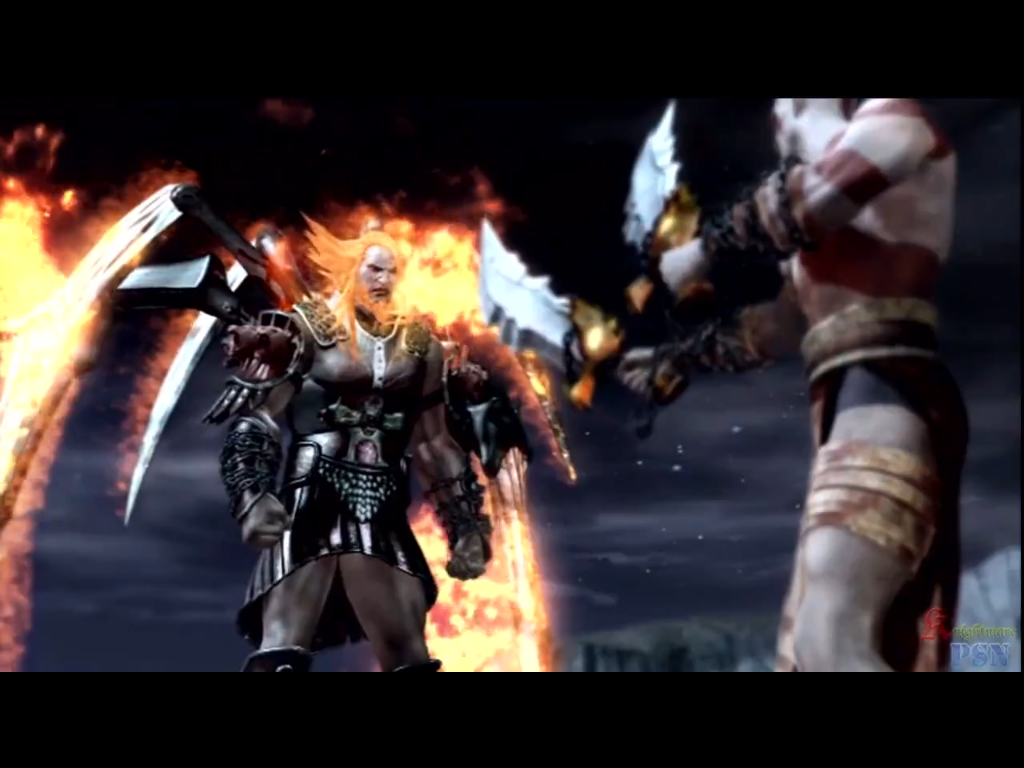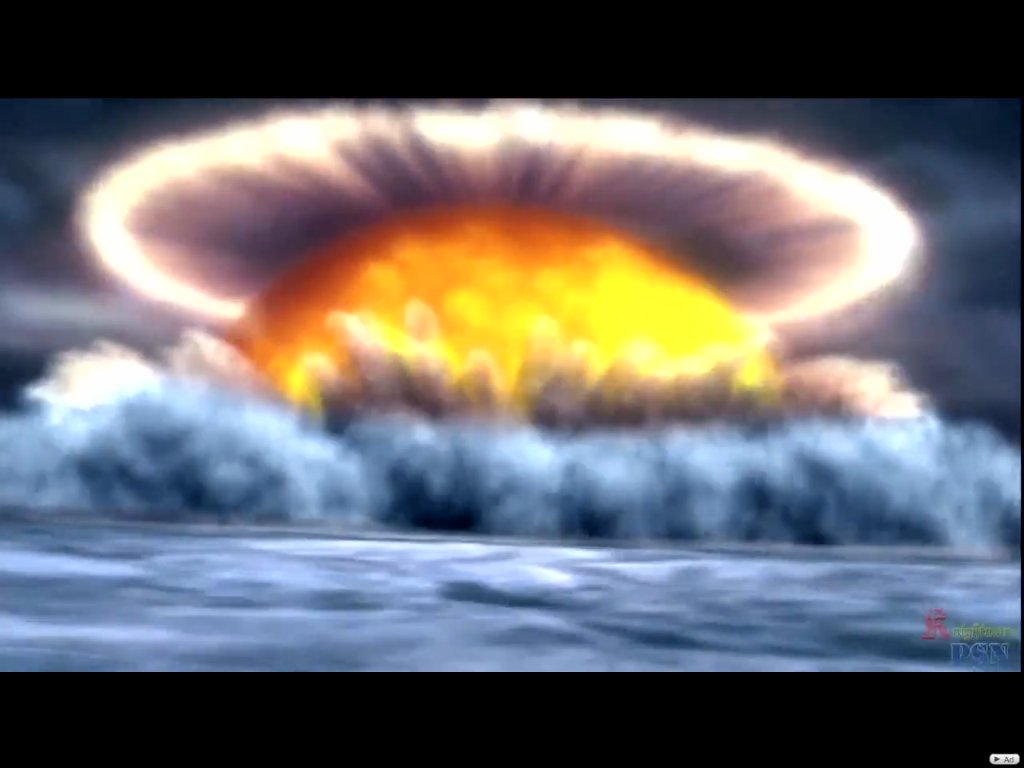HADES & THE GOD OF WAR (AKA GODZILLA)
 |
| Note: Does not contain power to kill a god. Supplies limited. |
Kratos bests the
trials of the Temple Athens Aegean Sea . Kratos climbs up the
man’s back with his blades and gets to safety, screwing over the Captain once
more. Kratos must then climb his way out of the halls of death.
Falling into Hades
is a noteworthy dilemma. On one hand, having Kratos die and fight through Hades
is really cool. It adds to the mythological collective that is God of War
without seeming too ridiculous, and generally makes Kratos that much more
badass. On the other hand, it really is a situation born of convenience. What
would you rather do, mine dear reader? Drag a huge and weighty box through the
vast and unforgiving desert only to fight a god right after, or die? Kratos
ends up opening the Box right next to his target, anyway.
This section gives
little in way of story, and is truly meant to test the skills developed by the
player. Overall, it is tedious, frustrating, and generally hellish (ha, ha). Upon
muscling his way through, Kratos finds a lone rope dangling from above.
 | ||
| The Gravedigger: Zeus when not a raping Swan |
At the top of the
rope stands the Gravedigger, whom Kratos met during his time in Athens Temple
When the
Gravedigger vanishes, Kratos continues toward the end of his quest. He finds
Ares boasting, with Pandora’s Box dangling from his fist (convenient). Kratos
nabs the Box and releases its power, growing to enormous size to match
Ares/Godzilla. On a side note, it is interesting that Kratos uses Zeus’ gift, a
lightning bolt, to acquire the Box. This may suggest that even Ares’ father (at least in God of War) had
abandoned him, and that he was meant to be destroyed.
 |
| "Induction then destruction, who wants to die? Aaaaah!" |
Before their
fight, Kratos states that he is not the monster that Ares found the day he fell
to the barbarians. This line sets the significance of the fight’s events in
stone. This is the culmination of Kratos' arc, where he shows his change in character. Their godly clash is pretty straightforward until Ares sends Kratos into
a twisted manifestation of his past. Kratos stands in the village hut where he
murdered his family, the phantasms of his wife and child standing before him. Kratos
is forced to defend the specters as hordes of himself come crashing in to kill
them. Here, Kratos truly works for his forgiveness, finally confronting his
past. All of Kratos’ work culminates in this moment. Also, it's worthy to note that the Kratos doppelgangers are much more bestial
and fevered than we find Kratos, as players.
Finally, Ares tears
the Blades of Chaos from Kratos’ flesh and cuts down the family. Kratos is
forced to relive his worst moment. This is the most emotionally charged scene in
the game, and it really helps the player sympathize with poor ole’ Kratos. In
his following conversation with Ares, Kratos sounds the closest to crying he has ever come.
Kratos returns to
the battlefield before Ares, broken in spirit. This may suggest that he can
never truly forgive himself. As Ares prepares to deliver the murder stroke,
Kratos dodges and takes up the Blade of the Gods: a monstrously huge blade,
seemingly used as a decorative bridge until this point. I must note that, in comparison to his former go-to weapons, the Blades of Chaos, this new sword is simple and sane in design. Because it appears at the end of the game, where Kratos' arc comes to a close, this might mean that Kratos is taking steps away from madness.
| Womenfolk; always gettin' in the way of man business. |
 |
| Shouldn't have eaten those tacos, Ares. |
This scene may suggest that Ares’ destruction was a consequence
of his misdeeds. At the very least, it seems that Kratos has grown in character
since the beginning of the game. It is also interesting to note that Kratos and
Ares are fighting in the Aegean Sea , where the game
begins. Remember how I said that the sea was a projection of all that bad stuff
going on within Kratos? The fact that the two are fighting in the sea like it’s
a puddle suggests that Kratos has overcome his troubles. Also, the sea can represent the cycle of life and death, birth and return, which are all relevant to Kratos' arc.
Then, in Ares’ dying moment, he explodes like an H-Bomb, because...why not? --
Then, in Ares’ dying moment, he explodes like an H-Bomb, because...why not? --



Diese ist gut meine donnergott!
ReplyDeleteEd McGuire:
Ein few points.
Ist Zeus das Vater of Ares? Ich think er ist ein big-brother, und Chronos ist their father.
Also, "Worst moment," bitte? Why not "worst memory?"
UND DIE GRAVEDIGGER IST ODIN!
OOOOOOODIIIIIIIIIIN
In the God of War universe Zeus is indeed the father of Ares.
ReplyDeleteI didn't see anyone noticing that the first stage of fight with Ares is incredibly similar to final boss battle in Metal Gear Solid 2.
ReplyDelete